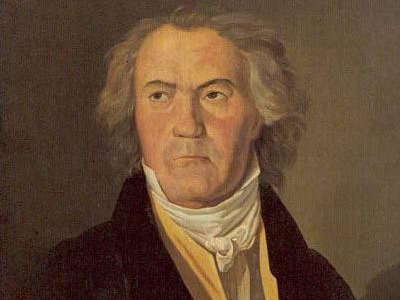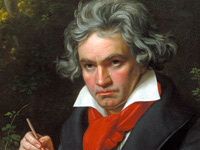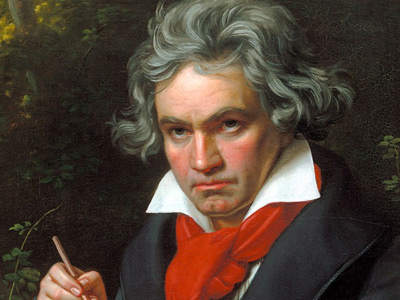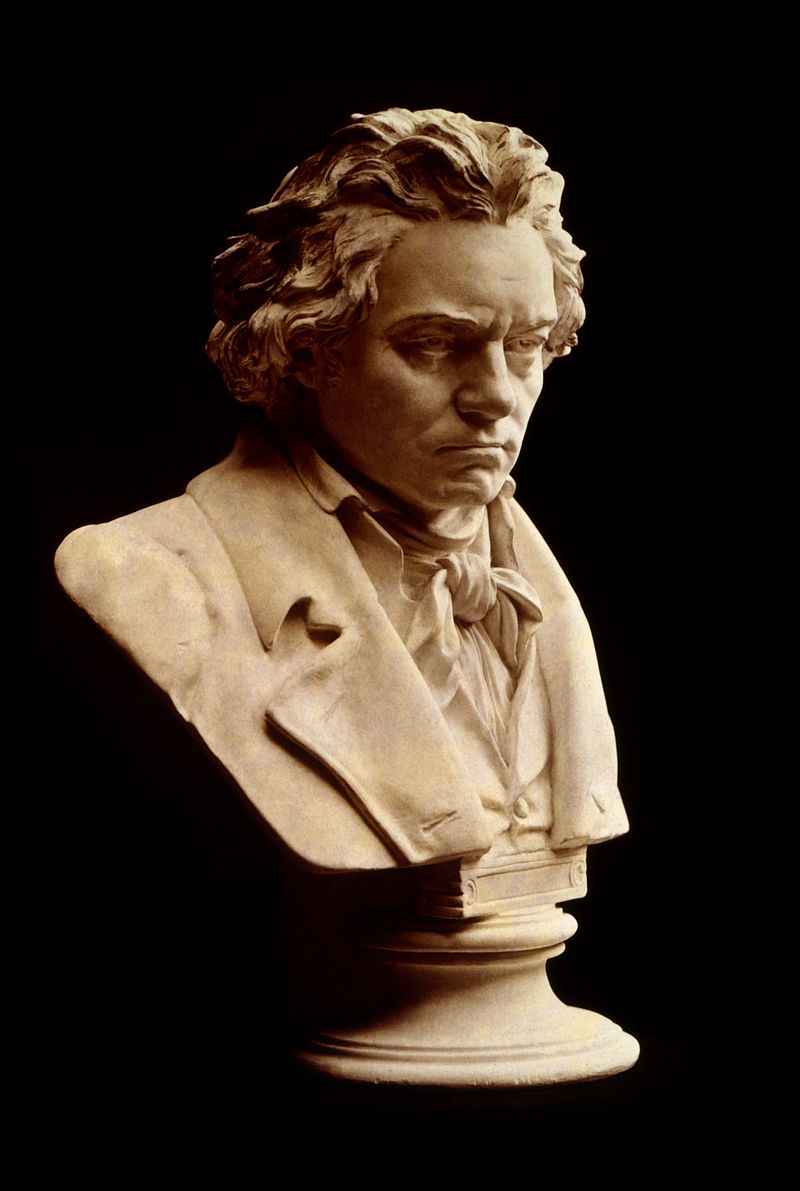Ludwig van Beethoven (1770-1827)

Loss of Hearing
Beethoven is reported to have dated his hearing loss from a fit he suffered in 1798 induced by a rage at the interruption of his work—having fallen over, he got up to find himself deaf. His hearing only ever partially recovered and, during its gradual decline, was impeded by a severe form of tinnitus. As early as 1801, he wrote to friends describing his symptoms and the difficulties they caused in both professional and social settings (although it is likely some of his close friends were already aware of the problems).
The cause of Beethoven's deafness is unknown, but has variously been attributed to typhus, auto-immune disorders (such as systemic lupus erythematosus), and even his habit of immersing his head in cold water to stay awake. The explanation from Beethoven's autopsy was that he had a "distended inner ear," which developed lesions over time.
Beethoven, on the advice of his doctor, lived in the small Austrian town of Heiligenstadt, just outside Vienna, from April to October 1802 in an attempt to come to terms with his condition. There he wrote his Heiligenstadt Testament, a letter to his brothers which records his thoughts of suicide due to his growing deafness and records his resolution to continue living for and through his art. Over time, his hearing loss became profound: at the end of the premiere of his Ninth Symphony in 1824, he had to be turned around to see the tumultuous applause of the audience because he could hear neither it nor the orchestra. Beethoven's hearing loss did not prevent him from composing music, but it made playing at concerts—a lucrative source of income—increasingly difficult. After a failed attempt in 1811 to perform his own Piano Concerto No. 5 (the "Emperor"), which was premiered by his student Carl Czerny, he never performed in public again until he directed the premiere performance of the Ninth Symphony in 1824, which involved him giving cues to conductor Michael Umlauf.
A large collection of Beethoven's hearing aids, such as a special ear horn, can be viewed at the Beethoven House Museum in Bonn, Germany. Despite his obvious distress, Czerny remarked that Beethoven could still hear speech and music normally until 1812. Around 1814 however, by the age of 44, Beethoven was almost totally deaf, and when a group of visitors saw him play a loud arpeggio of thundering bass notes at his piano remarking, "Ist es nicht schön?" (Is it not beautiful?), they felt deep sympathy considering his courage and sense of humour (he lost the ability to hear higher frequencies first).
As a result of Beethoven's hearing loss, his conversation books are an unusually rich written resource. Used primarily in the last ten or so years of his life, his friends wrote in these books so that he could know what they were saying, and he then responded either orally or in the book. The books contain discussions about music and other matters, and give insights into Beethoven's thinking; they are a source for investigations into how he intended his music should be performed, and also his perception of his relationship to art. Out of a total of 400 conversation books, it has been suggested that 264 were destroyed (and others were altered) after Beethoven's death by his secretary Anton Schindler, who wished only an idealised biography of the composer to survive. However, Theodore Albrecht contests the verity of Schindler's destruction of a large number of conversation books.
HISTORY

RESOURCES
This article uses material from the Wikipedia article "Ludwig van Beethoven (1770-1827)", which is released under the Creative Commons Attribution-Share-Alike License 3.0.
© Stories Preschool. All Rights Reserved.











